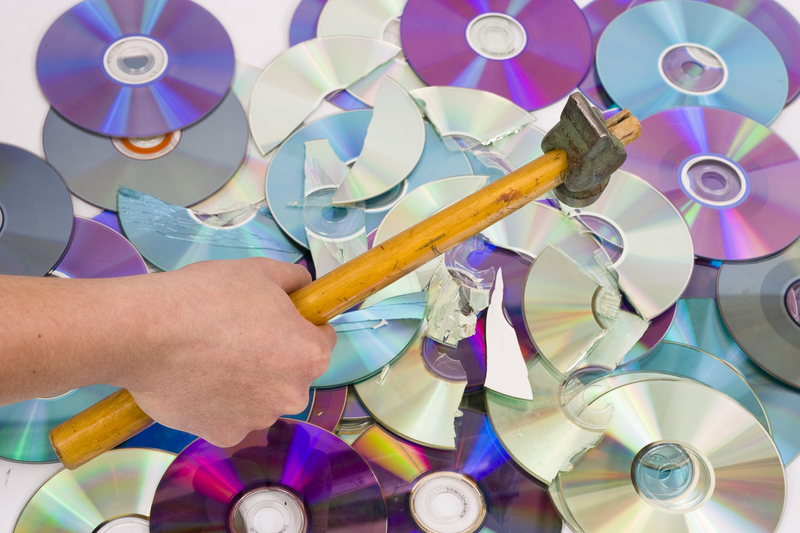Effective Solutions for Recycling and Disposing of Outdated Chargers
As electronic gadgets rapidly evolve, the number of outdated chargers accumulates faster than most of us realize. Old phone chargers, USB cables, and power adapters pile up in drawers, creating e-waste and environmental concerns. Are you wondering how to get rid of old chargers responsibly? Here's a comprehensive guide to the best solutions for recycling and disposing of outdated chargers so you can protect our planet and maybe even reclaim some valuable materials.

Why Outdated Charger Disposal Matters
Every year, millions of tons of electronics--including chargers--end up in landfills, leaching toxic substances into the soil and water. Chargers contain metals such as copper, lead, and tin, as well as plastics that take centuries to decompose. If not disposed of correctly, these toxins harm ecosystems and human health. This makes responsible disposal and recycling of outdated chargers crucial for environmental protection and sustainable resource management.
- Electronic waste (e-waste) often contains hazardous substances.
- Recycling chargers can recover valuable materials.
- Responsible disposal keeps landfills free of harmful components.
Identifying Outdated Chargers
Before you start seeking disposal solutions, it pays to identify which chargers are genuinely outdated. No longer compatible with your current devices? Is the cord frayed or damaged? Does it use obsolete connections like 30-pin, Mini-USB, or specialized laptop tips? If so, these are good candidates for recycling.
Types of Old Chargers Needing Recycling
- Phone and tablet chargers (micro-USB, 30-pin, lightning, USB-C)
- Laptop and computer power adapters
- Wireless charging pads and cables
- Car chargers and universal adapters
- Specialized camera or speaker chargers
Environmental Impact of Improper Disposal
Improperly discarded chargers contribute to the fastest-growing waste stream in the world--e-waste. Contaminants such as lead and cadmium may leak into groundwater, while burning plastics release dioxins into the air. Recycling outdated chargers not only diverts these harmful substances but also reduces the demand for newly mined metals and plastics, conserving precious resources.
Best Solutions for Recycling Outdated Chargers
There are several safe and sustainable ways to recycle your old phone chargers and cables. Below are the most effective options for both individuals and businesses.
1. Use Local E-Waste Recycling Centers
Most cities now have e-waste recycling programs, making it easier than ever to responsibly dispose of your outdated chargers. These centers ensure e-waste is properly managed according to local environmental regulations.
- Search online for a local e-waste collection point near you.
- Bring all old chargers, cords, and adapters--many centers accept small electronics for free.
- Some centers offer periodic e-waste collection events.
2. Manufacturer and Retailer Take-Back Programs
Major device manufacturers and electronics retailers often provide charger recycling or take-back initiatives. Some examples include:
- Apple Recycling Program: Bring any brand's chargers and electronic accessories to an Apple Store for recycling.
- Best Buy: Drop off chargers, cables, and cords in the store's dedicated recycling kiosks.
- Staples: Offers free electronics recycling at most locations, including chargers and wires.
- Samsung Recycling Direct: Accepts mobile device chargers nationwide.
Always check the store's website for specific instructions or restrictions, as some locations may have limitations on the quantity or type of accepted items.
3. Use Mail-In Recycling Services
If local options are limited, consider mail-in recycling services focused on electronics. Companies like Call2Recycle or TerraCycle let you send in used chargers and cables for safe processing. This method is especially useful for remote areas or bulk recycling.
- Request a recycling envelope or box from the company's website.
- Package your outdated chargers, and send them in via pre-paid shipping labels.
- Receive confirmation that your e-waste has been recycled responsibly.
4. Donation and Reuse Initiatives
Not all old chargers are truly obsolete. If your charger still works, it might help someone else or serve a community project. Consider:
- Donating to local schools, shelters, or charities--many non-profits can use spare chargers.
- Community repair cafes or tech workshops often accept working electronics.
- Organize a charger swap--your outdated plug might be someone else's treasure!
5. Reusing or Repurposing Old Chargers
Get creative and find new uses for your old chargers and cables before recycling:
- Cut and use wires for electronics hobby projects or DIY repairs.
- Craft organizers or keychains using braided cable covers.
- Designate a spare charger for travel, car, or office use--just in case.
While not a long-term solution, repurposing chargers minimises immediate waste.
How to Prepare Chargers for Recycling
For safe and effective recycling of outdated chargers and cables, prepare your items as follows:
- Bundle cords neatly with rubber bands or twist ties.
- Remove batteries (if any) as these must be recycled separately.
- Wipe off any dust or grime for the recycling facility's safety and ease of handling.
- Label your items if required by the e-waste collector or program.
What Happens to Recycled Chargers?
After you drop off or mail in your outdated chargers for recycling, they go through several important stages:
- Sorting and Dismantling: Chargers and cables are separated into categories and manually dismantled.
- Shredding and Separation: Machines crush the plastics, copper wires, and metals, then sort them using magnets and flotation techniques.
- Material Reclamation: Plastics are melted for reuse; valuable metals like copper and aluminum are smelted and reintroduced into manufacturing cycles.
- Hazardous Waste Management: Any toxic substances are isolated and treated for safe disposal.
This process not only prevents pollution but also reduces the need for virgin resource extraction--a win for both environment and economy!
Legal and Regulatory Aspects of Charger Disposal
Some countries and regions have strict regulations governing disposal of outdated chargers and electronics. The European Union's WEEE (Waste Electrical and Electronic Equipment) standards, for example, mandate recovery and recycling targets. In the United States, certain states ban e-waste from landfills and require manufacturers to offer recycling programs. Check your local laws to ensure compliance and locate authorized disposal sites.
- Never throw old chargers in regular trash bins--they could end up inappropriately dumped and cause harm.
- If unsure, contact your local waste management authority for guidance.
Common Mistakes to Avoid
- Throwing chargers in the regular trash: This results in toxic e-waste landfill pollution.
- Hoarding cables "just in case": Leads to drawer clutter and missed recycling opportunities.
- Assuming nobody wants your old charger: Many organizations are happy to receive working accessories.
- Cutting cords before recycling: Unless specifically instructed (for data security), leave chargers intact for recyclers.
Benefits of Recycling Outdated Chargers
- Prevents environmental pollution from toxic substances in landfills.
- Conserves natural resources by reclaiming valuable metals and plastics.
- Supports circular economy--old chargers become new products.
- Fosters responsible consumption habits in your household or company.
Did you know?
If Americans recycled just 1 million old cell phone chargers, we could save enough energy to power 185 homes for a year and recover thousands of pounds of copper and silver!

Conclusion: Make Outdated Charger Disposal Part of Your Routine
We all have outdated chargers lying around--but thanks to numerous recycling solutions for old chargers, phone cables, and adapters, you can easily keep them out of the landfill. Use local e-waste drop-offs, retailer take-back programs, mail-in services, or donate and repurpose when possible. By making responsible disposal of obsolete chargers part of your routine, you'll help create a cleaner, greener world and support the circular economy.
Resources and Additional Information
For more details on recycling outdated chargers and electronics, check these helpful links:
- Call2Recycle - Mail-in recycling service and locator.
- US EPA Electronics Donation and Recycling - Government resource and advice.
- Apple Trade-in & Recycling - For Apple device and accessory recycling.
- Best Buy Recycling Program - Drop-off sites nationwide for small electronics.
Start today--recycle and dispose of your outdated chargers the right way and inspire others to follow your lead!